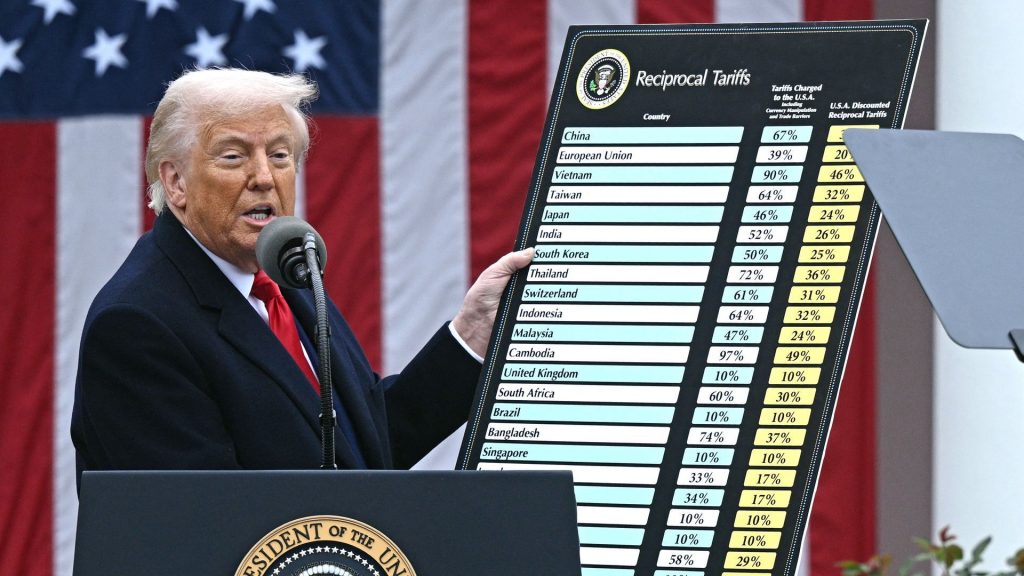Trump’s middle-of-the-night post betrays snags in US-China trade talks

President Donald Trump’s middle-of-the-night social media post suggests trade talks between the United States and China are floundering. Trump logged onto Truth Social at 2:17 a.m. ET on Wednesday, June 4, to lament the toughness of Chinese leader Xi Jinping.
“I like President Xi of China, always have, and always will, but he is VERY TOUGH, AND EXTREMELY HARD TO MAKE A DEAL WITH!!!” Trump wrote.
The post comes three weeks after each country agreed to suspend massive tariffs on the other’s exports while they negotiate a permanent trade deal.
Unbiased. Straight Facts.TM
The United States imported $438.9 billion in goods from China in 2024 and exported $143.5 billion, according to the U.S. Trade Representative.

Maintaining a trade war ceasefire
Those negotiations are “a bit stalled,” Treasury Secretary Scott Bessent has previously stated. He suggested Trump and Xi might have to get involved in them.
The White House said on Tuesday, June 3, that the leaders might talk by telephone during the week of June 1. However, the Chinese government has not commented on a potential discussion. At a briefing, White House press secretary Karoline Leavitt noted that Trump and Xi “have shared a respectful relationship over the years.”
The two countries have been engaged in a trade war since Trump imposed a 145% tariff on goods imported from China. In response, China made a 125% levy on American goods. Meeting in Geneva, Switzerland, negotiators for both governments agreed to a 90-day truce on May 12, returning tariffs to their previous levels — 30% on Chinese goods and 10% on American exports. But the higher tariffs could be reinstated as early as August.
‘Supply chain warfare’
With the talks dragging on for the past three weeks, the trade dispute is expanding beyond tariffs into what The New York Times described as “supply chain warfare.” Each country sources vital goods and technologies from the other, and both have taken steps to block some transactions.
China has not yet eased restrictions the export of rare earth minerals — 17 metals that are critical in manufacturing military hardware, semiconductors, robots and other high-tech products. China controls about 70% of the global rare earth supply and oversees around 90% of the processing of these minerals.
U.S. officials have raised concerns about the potential for China to withhold key ingredients for pharmaceuticals and disrupt global shipping routes.
Since the May 12 agreement, the United States has suspended certain exports of software and semiconductor components, as well as jet engine components, to China. The Times reported that the Trump administration is considering a ban on imports from Chinese chipmakers and other technology companies.
However, Trump insisted that China is to blame for the difficult negotiations.
“I made a FAST DEAL with China in order to save them from what I thought was going to be a very bad situation, and I didn’t want to see that happen,” Trump wrote on Truth Social on Friday, May 30.
But Trump said China has “TOTALLY VIOLATED ITS AGREEMENT WITH US.”
“So much for being MR. NICE GUY!” he added.
What are China’s grievances?
China has also aired its grievances with the United States in recent days.
In particular, Chinese officials are reportedly upset over the Trump administration’s announcement that it will “aggressively revoke” student visas of Chinese citizens studying in the United States if they have connections to the Chinese Communist Party or are studying fields that are sensitive to national security. About 280,000 Chinese students are enrolled in U.S. high schools, colleges and universities.
China’s foreign minister, Wang Yi, complained to U.S. Ambassador David Perdue that the United States has introduced “regrettable” measures that are “infringing upon China’s legitimate rights and interests,” according to a readout of the Chinese government’s June 4 meeting in Beijing.
Wang told Perdue that U.S.-China relations are at “an important and critical juncture.”
Trade is not the only issue straining the relationship between the two countries. According to Reuters, China lodged a complaint with the U.S. government over Secretary of State Marco Rubio’s commemoration of the anti-government protests in Beijing’s Tiananmen Square in 1989.
On June 4, 1989, Chinese tanks opened fire on demonstrators. Thousands are believed to have been killed.
However, China claimed Rubio “distorted” the facts about the uprising.




